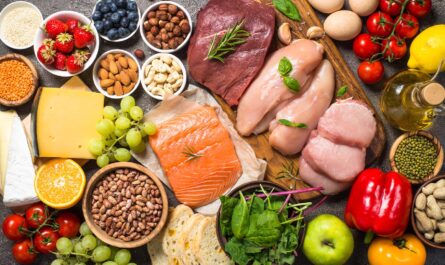Understanding Macronutrients for Athletics
Carbohydrates are the most important macronutrient for athletes. Carbs provide glucose to the bloodstream which is the primary fuel source for muscles and the brain during exercise. It’s recommended that endurance athletes consume 6-10 grams of carbs per kilogram of body weight per day. Carbs should come from foods like oats, rice, pasta, fruit, starchy vegetables, etc. Athletes should focus on consuming carbs in the hours and days leading up to their athletic event to ensure proper fuel stores.
Protein is another essential macronutrient that athletes need more of compared to non-active individuals. Protein is needed for muscle protein synthesis and repair of exercise-induced muscle damage. Current guidelines suggest athletes consume 1.4-2 grams of protein per kilogram of body weight per day. Good sources of protein include chicken, fish, eggs, dairy, beans, quinoa and nuts. Protein should be consumed within a few hours after workouts to maximize muscle rebuilding.
Dietary fat plays an important role in sports nutrition as well. While the total amount of fat consumed may be lower than carbs and protein, fat provides essential fatty acids and aids in vitamin absorption. Athletes should focus on healthy, unsaturated fats found in salmon, avocados, olive oil, nuts and seeds. These assist in reducing inflammation and supporting hormone production.
Hydration Strategies for Optimal Performance
Water is essential for so many bodily functions including temperature regulation and nutrient delivery. Due to increased sweat losses, athletes must pay close attention to hydration. As a rule of thumb, athletes should drink approximately 500ml of water 2-3 hours before exercise and another 200-300ml every 15-20 minutes during activity.
Sports drinks like Gatorade may also benefit some athletes. Sports drinks provide carbs and electrolytes lost in sweat like sodium, potassium and chloride. Endurance athletes sustaining moderate to high intensity workouts over an hour are good candidates. Sports drinks should only account for no more than 50% of total fluid intake with water making up the rest.
Caffeine is often used by athletes to enhance performance. Low-moderate amounts (3-6mg/kg body weight) have been shown to boost endurance, strength, reaction time and alertness. Caffeine can be consumed 1-2 hours pre-workout in coffee, tea or supplement form. However, too much caffeine can cause anxiety, disrupted sleep and digestive issues.
Nutraceuticals for Recovery & Injury Prevention
Protein supplements are convenient for athletes with higher protein needs or those unable to consume enough protein from whole foods alone. Whey and casein are high-quality protein sources that aid in rebuilding muscle tissue post-workout.
Creatine monohydrate is one of the most researched sports supplements used to supercharge high-intensity exercise capacity and support strength gains. Vegetarians may benefit the most from creatine given limited dietary sources.
Omega-3 fatty acids assist with reducing post-exercise muscle soreness and inflammation. Fish oil or algal oil supplements provide essential EPA and DHA fats shown to speed recovery. Joint supplements containing glucosamine, chondroitin and turmeric can also alleviate joint pain in high-impact sports.
Vitamin D plays an important role in bone and muscle health. Outdoor athletes are at a lower risk of deficiency compared to those training primarily indoors. Athletes should consider supplementation, especially in darker months when natural synthesis is limited.
Proper planning is needed to achieve sports nutrition goals through diet alone. Working with a registered dietitian can help create customized nutrition strategies factoring in an athlete’s sport, training schedule, body composition targets and more. Supplements may further aid performance when diet is optimized first.
*Note:
- Source: Coherent Market Insights, Public Source, Desk Research
- We have leveraged AI tools to mine information and compile it
Author Bio:
Ravina Pandya,Content Writer, has a strong foothold in the market research industry. She specializes in writing well-researched articles from different industries, including food and beverages, information and technology, healthcare, chemical and materials, etc. (https://www.linkedin.com/in/ravina-pandya-1a3984191)



